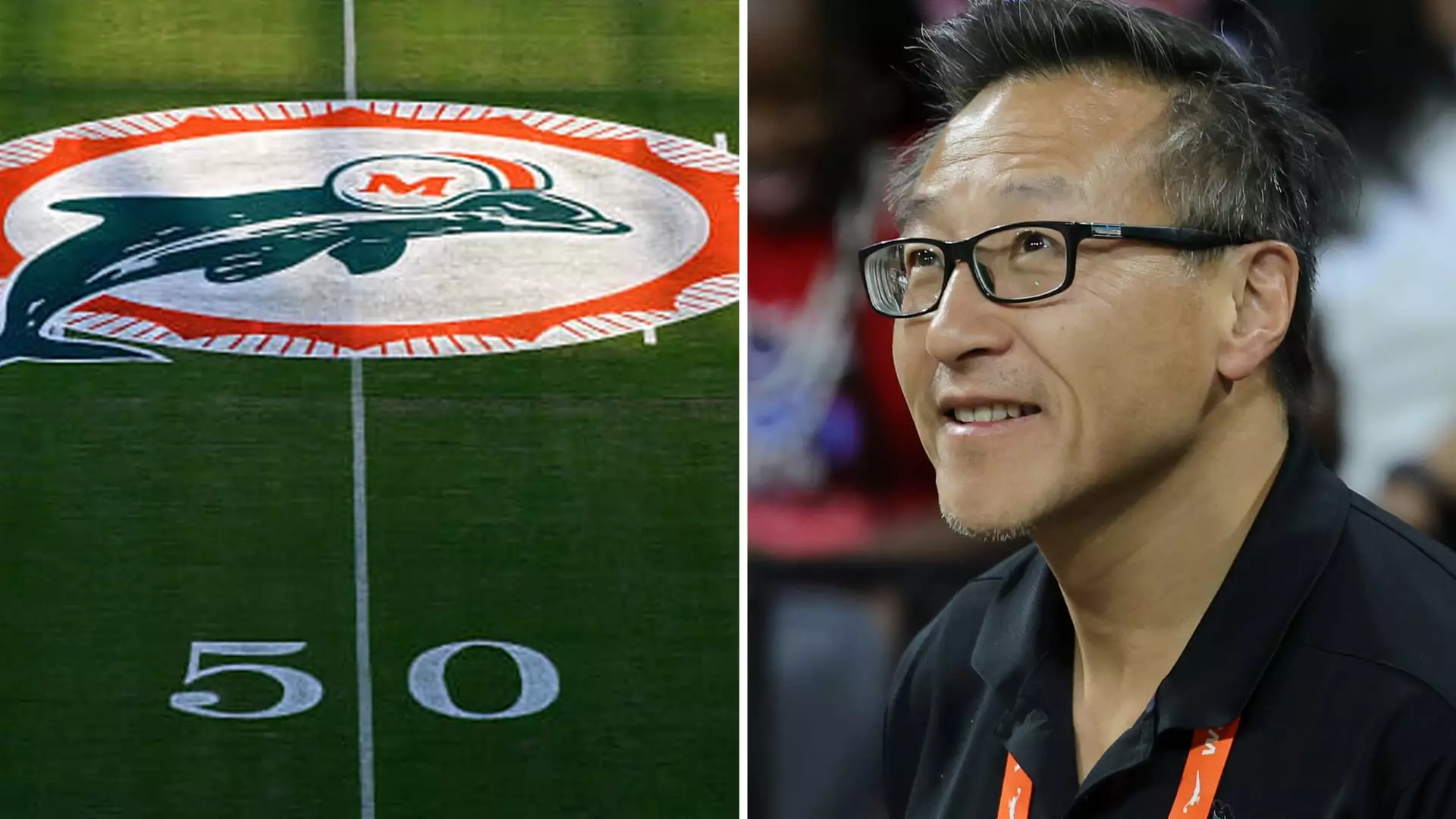Recent reports have revealed that the Miami Dolphins are in advanced discussions to sell a minority stake in their franchise to Ares Management, a private equity firm, alongside billionaire investor Joe Tsai. This development is indicative of a broader trend within sports, where owners are increasingly seeking to diversify their financial portfolios by holding stakes in multiple teams and operational assets, thereby enhancing their revenue streams. The proposed sale, which encompasses the team, the rights to Hard Rock Stadium, the Miami Grand Prix Formula 1 race, and a portion of the Miami Open, points to a new era in NFL ownership structures.
Valuation Insights
The financial parameters surrounding this deal are noteworthy. Valued at approximately $8.1 billion according to insiders, the Dolphins’ assets reflect a significant appreciation since businessman Stephen Ross acquired the franchise for $1.1 billion in 2009. Interestingly, a full controlling stake in the team, coupled with the related assets, would be worth over $10 billion, suggesting that current market conditions and financial evaluations are leading to unprecedented valuations within the NFL. This sale may serve not only as a lucrative financial move for Ross but also as a strategic pivot within a league that has historically resisted outside investment.
This transaction would mark a pivotal moment for the NFL, as it would be the first time the league allows private equity investment since it amended its financing rules in August. As financial valuations for sports franchises skyrocket, the NFL’s openness to new investment avenues is both timely and necessary. Ares Management, with its substantial asset management portfolio of $450 billion, is uniquely suited to capitalize on this trend. Meanwhile, Joe Tsai’s growing influence as a sports mogul, being the owner of the Brooklyn Nets and co-owner of other prominent franchises, underlines the shift towards complex ownership structures in professional sports.
Team Revenue and Future Investments
The Dolphins themselves have reported revenues of $673 million for the year 2023, underscoring the potential for profitability within the franchise. Owning not only the team but also the stadium permits Ross to maximize cash flows from various events held at Hard Rock Stadium, such as the Miami Open and the Miami Grand Prix. By strategically leveraging these assets, Ross aims to further invest in the South Florida real estate market and expand his sports-related interests. His decisions are reflective of a larger trend where sports team ownership is not just about game-day attendance but also about maximizing event-related income streams.
The NFL’s recent decision to permit private equity firms to invest in teams signals a broader transformation in how ownership is conceptualized within the league. Historically, the NFL has been cautious about outside investment, but the increasing valuation of teams has compelled a reevaluation. As owners grapple with rising operational costs and financial sustainability, the infusion of capital from private equity could provide much-needed resources to maintain competitiveness and upgrade facilities or rosters.
As the discussions regarding the minority stake sale of the Miami Dolphins unfold, they not only reveal the financial intricacies of modern sports franchises but also set a precedent for future dealings within the NFL. With the potential involvement of high-profile investors such as Ares Management and Joe Tsai, the Dolphins may be at the forefront of a transformative phase in professional football ownership. This trend could ultimately lead to an NFL landscape that embraces a mixed model of ownership, characterized by traditional franchise owners and modern financial investors working in tandem to capitalize on the lucrative nature of professional sports. As the dynamics continue to evolve, stakeholders across the league will be watching closely to see how these new investments shape the future of the NFL.


Leave a Reply